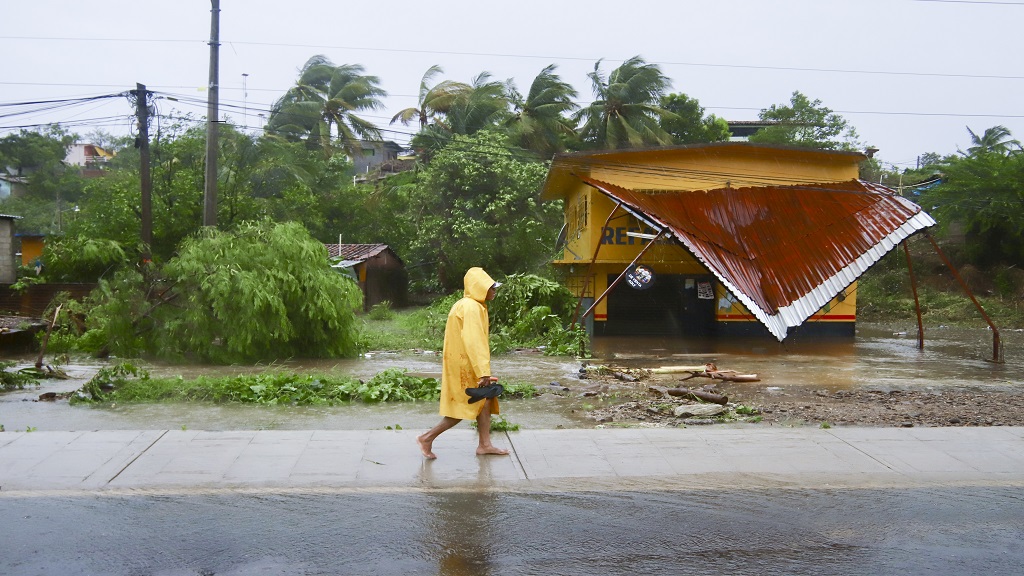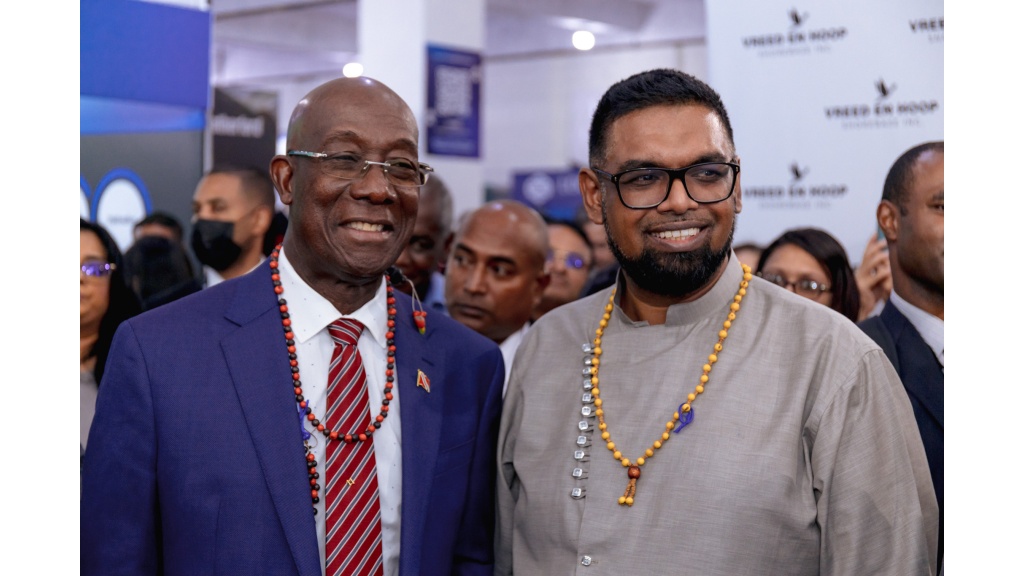IC hits back at critics of the way it handled probe involving the PM

Blame the law!
That’s the position being taken by the Integrity Commission (IC) in the face of the withering criticism it has received over the way it made public, a report on a corruption investigation involving Prime Minister Andrew Holness.
In particular, the IC is being raked over the coals for its decision to separate the findings of the said probe by its Director of Investigation, Kevon Stephenson, and a subsequent ruling by its Director of Corruption Prosecution, Keisha Prince-Kameka which stated that no charges should be brought against Holness.
Of note is that the Commission made public on February 14, a 107-page report with its explosive findings and recommendations including that the prime minister likely influenced the award of nearly $22 million in government contracts to Westcon Construction Limited, ostensibly because he was acquainted with its directors, and that he be referred to the Director of Corruption Prosecution for possible criminal sanction.
The investigation report sated boldly that Holness was referred to the Director of Corruption Prosecution for consideration with respect to breaches of the Contractor General Act, the Public Sector Procurement Regulations 2008, the Corruption (Prevention) Act and/or any other applicable law.
By the time this was made known to the public on February 14, the Director of Corruption Prosecution had ruled that no charges be brought against the prime minister.
The IC made that information known to the public on February 16 and has been roundly criticised since. Its harshest critics range from members of the governing Jamaica Labour Party, including Justice Minister Delroy Chuck who has called for heads to roll, to the influential Private Sector Organisation of Jamaica which has called for an explanation into how the IC makes its decisions.
Responding, the IC has suggested that the finger of blame be pointed instead at the country’s lawmakers.
In its statement, the IC said it has taken note of the widespread criticism.
However, it explained that “The ruling of the Director of Corruption Prosecution in a matter where a report has been sent to Parliament cannot be communicated to anyone before the report has been tabled”.
It said this is so by virtue of Section 53(3) of the Integrity Commission Act which states that “until the tabling of a report in Parliament, all matters under investigation by the Director of Investigation or any other person involved in such investigation shall be kept confidential and no report or public statement shall be made by the Commission or any other person in relation to the initiation or conduct of (the) investigation”
The IC went further, emphasising that “there is no provision in the Act mandating the tabling of a ruling by the Director of Corruption Prosecution”.
It said notwithstanding this fact, the Commission has taken the position that in the interest of full and early disclosure, such a ruling ought to be communicated to Parliament, and the public advised.
“It is worth repeating and stressing that publication of the ruling could not be done before or simultaneously with the report. It had to await the tabling of the report. That is the law as crafted by Parliament and referred to earlier,” the IC added.
See below the full statement of the Integrity Commission:
The Integrity Commission has taken note of some comments that have been made by various individuals and groups in respect of the report of the Commission’s Director of Investigation and the ruling of the Director of Corruption Prosecution, in the matter of Westcon Construction Limited.
The Commission takes the opportunity to inform the public as follows:
The Integrity Commission Act requires that where, in a report to the Commission, the Director of Investigation is satisfied that there are reasonable grounds for suspecting that there has been a breach of a code of conduct by a public officer or parliamentarian, or where there is suspicion that an act of corruption or an offence under the Act has been committed, the Commission shall submit the report to Parliament for tabling.
There is no provision in the Act mandating the tabling of a Ruling by the Director of Corruption Prosecution.
Notwithstanding that there is no provision for the tabling of a Ruling, the Commission has taken the position that in the interest of full and early disclosure, such a Ruling ought to be communicated to Parliament, and the public advised.
The Ruling of the Director of Corruption Prosecution in a matter where a report has been sent to Parliament, cannot be communicated to anyone before the report has been tabled. This is so by virtue of Section 53(3) of the Integrity Commission Act which states that “until the tabling of a report in Parliament, all matters under investigation by the Director of Investigation or any other person involved in such investigation shall be kept confidential and no report or public statement shall be made by the Commission or any other person in relation to the initiation or conduct of (the) investigation”.
In the instant case, the report having been sent to the Director of Corruption Prosecution, as required by the law, she submitted her Ruling dated 12 January 2023, to the Commission. The Commissioners, not having had the opportunity to read, understand and discuss it, took time to do so.
The report was sent to Parliament and was tabled on 14 February 2023. Confirmation of the tabling was communicated to the Commission on 15 February 2023. The Commission’s review of the Ruling, having been finalised, instruction was given on the said 15 February 2023 for it to be published, and the publication was done on 16 February 2023. It is worth repeating and stressing that publication of the Ruling could not be done before or simultaneously with the report. It had to await the tabling of the report. That is the law as crafted by Parliament and referred to earlier.
The Integrity Commission wishes to stress that the Integrity Commission Act makes the various Directors independent of each other. The Director of Information and Complaints receives complaints. He filters such complaints to the appropriate Director, usually the Director of Investigation, who then conducts an investigation if he thinks it necessary. After such investigation, he submits his report to the Commission for tabling in Parliament. Where the Director of Investigation is of the view that the matter should be referred to the Director of Corruption Prosecution, to determine whether or not prosecution should be instituted, the report is then forwarded to the Director of Corruption Prosecution and, subsequently, to Parliament for tabling.
The Director of Corruption Prosecution, who is not subject to the direction or control of any person or body in relation to the conduct of prosecutions [section 34(3)], then decides whether or not, on the basis of the evidence contained in the report of the Director of Investigation, prosecution should be instituted. That decision is then sent to the Commissioners.
The Integrity Commission wishes to assure the public that it takes its task seriously. It rejects any assertion that there has been any misstep in the proceedings. In all matters under the Commission’s purview, every effort is made to follow the provisions of the law strictly. The Ruling of the Director of Corruption Prosecution in a matter does not change the content of the report of the Director of Investigation. They are independent in their operations.
The Director of Investigation and the Director of Corruption Prosecution are given separate and distinct roles under the Integrity Commission Act. One investigates, reports and recommends; the other rules on what is recommended. The Commissioners reviewed the Director of Investigation’s report and saw no reason to distant ourselves from it. The Director of Investigation was saying that offences may have been committed, based on the evidence that he had seen. As he was required by the law to do, he referred it to the Director of Corruption Prosecution for her to consider whether offences were in fact committed. It was a matter for the Director of Corruption Prosecution to decide, and she decided. Notwithstanding that decision, the law required that the report be sent to Parliament and be tabled before anything could be said about the report.
There has been strict compliance with the law. Adverse comments in respect of the Commission or its Director of Investigation are unwarranted and misconceived.
Finally, the Executive Director (Greg Christie) of the Commission has no control over the content of an investigation report or a ruling.









1 Comment
I like this web site very much, Its a really nice berth to read and obtain info.Blog monetyze